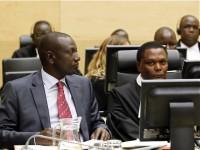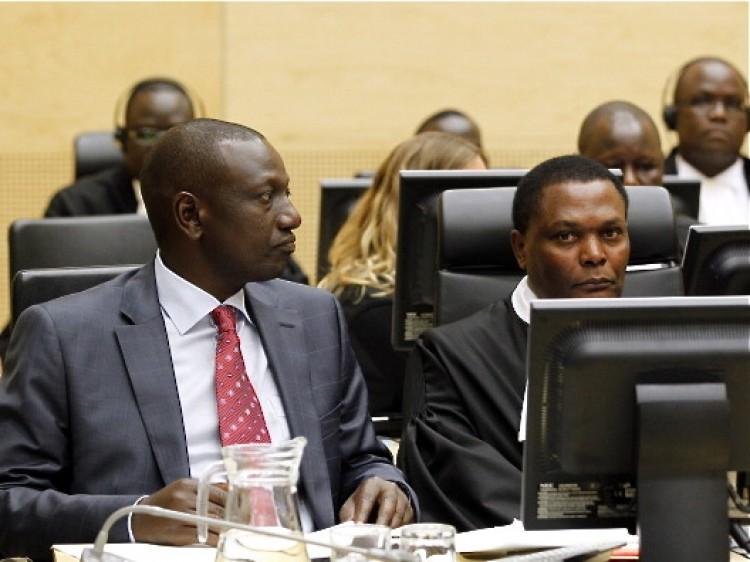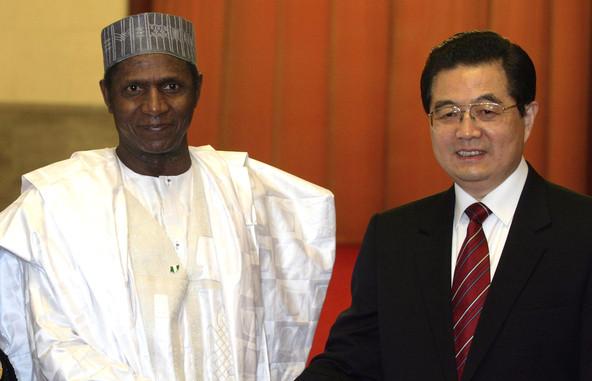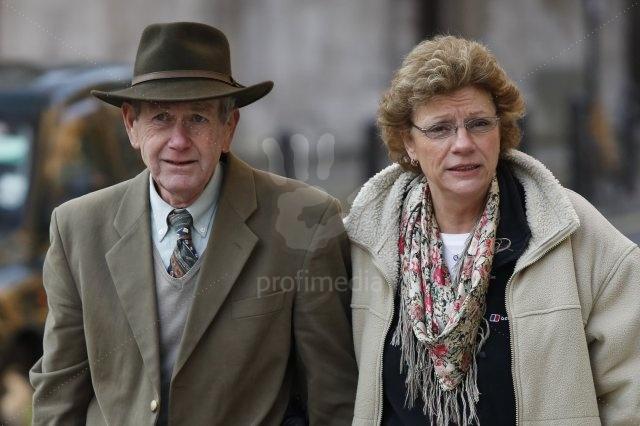ICC 6: Kenyan politicians at last face the consequences of their actions – By Daniel Waweru


William Ruto - former Minister of Higher Education and key ODM figure - attends the ICC pre-trial hearing at The Hague
It has been argued that Kenyans are interested in the ICC trials¹ because it’s the first time any senior Kenyan has been held to account for serious wrongdoing.
This is usefully wrong. Throup and Hornsby² once said, more acidly than was absolutely necessary, of Kamlesh Pattni’s activities that “the chance of his not having had top-level political support for [them] is nil.” Their view was confirmed by the Report of the Judicial Commission of Inquiry into the Goldenberg Affair, paras. 845 and 847, which proposed investigation of President Moi, and held Professor George Saitoti, who at the time of the scandal was Vice-President and Minister for Finance, responsible, with others, for it. Professor Saitoti went to court; in a landmark decision,³ he achieved a reversal of the report’s recommendation. This latter better explains Kenyan public interest in the ICC: it’s the first time that senior Kenyan politicians have faced the consequences of being held responsible for wrongdoing.
Public interest is also heated by the debates which caught fire in the aftermath of the violence: was it planned? When did it start? Who were its targets? Who was involved and why?â´ The findings of the court so far confirm answers to those questions that many Kenyans have long suspected but have been unable to show for fear, ignorance or party spirit. The pre-trial chamber, for example, found that the prosecutor’s evidence justified the view that significant portions of the violence, and consequent death and forcible transfer of population, were perpetrated as part of ODM’s political program:âµ
41. The Chamber finds that there are reasonable grounds to believe that from 30th December 2006 to the end of December 2007, Ruto, Kosgey and Sang, held a series of meetings in which they agreed on a common plan to punish PNU supporters and evict them from the Rift Valley, with the ultimate goal of gaining power and to create a uniform ODM voting block.
It also found that the murders in Naivasha and Nakuru were planned, and that they rose to the level of crimes against humanity:â¶
25. With respect to the alleged underlying acts constituting crimes against humanity, the Chamber is satisfied, on the basis of the examination of the facts referred to in paragraph 17 above, that there are reasonable grounds to believe that murder and forcible transfer of population as acts constituting crimes against humanity were committed as part of the attack against the civilian population in Nakuru and Naivasha.
Together, these findings tear apart the exculpatory stories that have been spun since these events. In the first case, a variety of ODM partisans have attempted to justify, or at least excuse, their share of the violence on the ground that it was a spontaneous – hence unplanned – response to the Electoral Commission of Kenya’s declaration.â· This was always extremely unlikely, and we now have something approaching legal confirmation of the point.
In the second case, the main justificatory argument heard from PNU partisans for the counterattacks in the Rift Valley and elsewhere was that they were justified attempts at self-defence. The chamber’s finding that they constituted crimes against humanity, on account of their planning and the selection of victims, shows that they were unjustifiable. Since they were directed against civilians who had nothing to do with the preceding violence, they were not acts of self–defence.
All this in a public and neutral forum, so that there can be no serious argument that the finders of these facts are biased.
The political consequences are less obvious; perhaps the clearest is the de-communalisation of responsibility. Much of the harm of the crimes consists in the hatred they stirred, since, in the absence of clear evidence of individual responsibility, entire groups were assumed responsible for the acts of a few of their own.⸠⹠The court has now credibly singled out individuals”” the right ones, let’s hope””as the main perpetrators; attention has turned to their personal culpability.
The majority’s rejection of Judge Hans-Peter Kaul’s understanding of the network that committed the crimes has also helped. He had seemed to argue¹â° that the network was an ethnic one, which could not therefore constitute an organisation for the purposes of Article 7 of the statute governing the prosecution of the crimes with which the suspects have been charged. The majority preferred the view that the network which committed the crimes constituted an organisation within the meaning of Art. 7. Presumably, it follows that the network wasn’t simply an ethnic association””a finding of some political importance, since it’s not hard to imagine what damage would have been done had the decision gone the other way.
But the decommunalisation has begun¹¹: much of the informal argument, online and off, asks who, rather than which community, was responsible for what. Admittedly, that’s a crude measure; a recent set of interviews¹² shows it’s not completely hopeless. A less crude metric is the recent poll which reported growing approval for the proceedings in the ethnic constituencies of Uhuru Kenyatta and William Ruto.¹³ Both candidates are now the leading politicians in their communities, which might be expected to oppose the trials and the court, since, given latent mistrust, a decrease in one’s patron’s power leaves one more vulnerable to (presumed hostile) ethnic others.¹â´ Instead, both Uhuru and Ruto have found renewed support as has the court.¹âµ Their communities are now discounting the consequences to themselves of their champion’s guilt; a turn best explained by a decline in mistrust.
Finally, it seems that post–election violence will be a key issue at the next general election. This will be the case whether the charges are confirmed or not. If confirmed, there will be further revelations, as the Prosecutor appears to be holding back evidence; its impact is hard to estimate, but impact there will be. If not, then those candidates who escape the reach of the court can be expected to make the most of it: perhaps by blaming the Prime Minister for their misfortune.¹â¶ Either way, the ICC will matter at the polls, whenever they are.
Daniel Wawaeru is a commentator on Kenyan politics.
References:
¹The cases are numbered ICC-01/09-02 and ICC-01/09-01. Public materials are collected online at http://www.icccpi.int/Menus/ICC/Situations+and+Cases/Situations/Situation+ICC+0109/Situation+Index.htm.
²Throup and Hornsby, 1998 p. 563
³See the judgement in Republic v Judicial Commission of Inquiry into the Goldenberg Affair &  others ex-parte George Saitoti (Misc. Civ. Appl. 106 of 2006).
â´Murunga (2011) is instructive.
âµTrendafilova (J) and Tarfusser (J), 2011a, para. 41.
â¶Trendafilova (J) and Tarfusser (J), 2011b, paras. 25 and 19.
â·It has also been argued that the violence in the Rift Valley did not constitute ethnic cleansing. But it is clear, from para. 31 of the pre-trial chamber’s Decision on the Prosecutor’s Application for Summons to Appear for William Samoei Ruto, Henry Kiprono Kosgey and Joshua Arap Sang, that the evidence supports the opposing view.
â¸But see Njogu (2009) whose testimony from victims, many of whom were willing to forgive their attackers and their communities even before the court process, is encouraging counter-evidence.
â¹Kasara (2011, p.10), relying on Afrobarometer survey data, finds that even before the elections, interethnic trust was very low: only Nigeria, of 17 African countries sampled, did worse. Dercon and Gutiérrez-Romero (2010, p. 19, and Table 4 on p.35) found sharp declines in trust across and within ethnic groups after the elections. Their survey was taken before the ICC process began.
¹â°Dissenting Opinion by Judge Hans-Peter Kaul to Pre-Trial Chamber II’s “Decision on the Prosecutor’s Application for Summons to Appear for William Samoei Ruto, Henry Kiprono Kosgey and Joshua Arap Sang”, paras. 45–51.
¹¹Muga has a very different view.
¹²Standard Team, 2011.
¹³Synovate IPSOS, 4. Nov. 2011. at http://www.synovate.co.ke/.
¹â´The point is sometimes made fairly explicitly, as in Uhuru’s campaign speech in Murang’a: http://www.youtube.com/watch?v=GWfPqokno.
¹âµI’m relying on the presidential polling: http://www.synovate.co.ke/.
¹â¶You’ll notice my assumption that at least some of the charges will be confirmed. Their inevitable politicisation is substantially eased by the Prosecutor’s recent admission that political considerations matter for his selection of cases: see http://opiniojuris.org/2011/11/07/there-is-a-double-standard-at-the-icc/.






Thanks Daniel. I think the rest of the world didn’t really hear enough about how closely Kenyans were following events at the ICC pretrial hearings in September/October.
FYI, our trial monitoring site, http://www.icckenya.org, is continuing to run comment and discussion as we await the ruling of the pretrial chamber on whether each of the six suspects should face trial. Please check it out!
Best wishes, Jonathan Birchall (Twitter: @OSFjustice)
I’m not sure the de-communalisation is evident or useful. I would interpret the increased support for both Uhuru Kenyatta and William Ruto in opinion-poling as evidence of communal support in spite of the evidence that’s come up.
More, I think this is consistent with the spirit in the 2007-2008 period when the communities, roughly said, seem to have given broad support to these efforts – mostly in spirit – but also in treasure and in eager bodies. Kenya’s failure to confront this communal support may allow a speedy resolution with these six as convenient scapegoats, but the impatiently smouldering coals portend a coming reckoning.
Then you’ll have a hard time explaining increased support for the ICC process, which is also reported. If growing approval for Uhuru and Ruto were the effect of their co-ethnics rallying round them in the face of an external problem, then you would expect the cause of the external problem to face disapproval from co-ethnics. But Uhuru and Ruto’s kinsmen now like the ICC better than they did a few months ago. That looks a lot like discounting the consequences of losing their leadership.
You go on to say that in 2007-8:
This strikes me as false.
(1) The most extensive communal mobilisation for violence was in the Rift Valley—and even there, at least some of it was coercive, going by a variety of witnesses. Nowhere else in the country, not even Nyanza, saw anything as extensive. So it’s just false to say that the communities gave broad support to these efforts. That’s just not the case.
(2) I know it’s unfashionable to say so, but the communal hatred and support for violence is pretty much the creation and preserve of elites. There’s a bunch of evidence to show that richer Kenyans identify more strongly with their ethnicities than do less-rich, there’s a bunch of evidence that people become more willing to support ethnic violence the more educated they are, and there’s very extensive evidence that non-elites go along in fear or igorance or hope of gain. Briefly: ethnic mobilisation is mainly an elite problem. Which is why raising the potential cost, to elites, of ethnic mobilisation is a promising strategy.
Open letter to Daniel Waweru
Allow me to start by appreciating the great work you have done as writer. Indeed you are a prolific writer! In your latest article on the Impact Of Icc in Kenya, I would like to agree with you that this whole issue will take centre stage in the next year’s general election. Actually it will play a big role in determining who is going to be Kenya’s next CEO. However, I think you borrowed a lot from the ICC proceedings and Ocampo’s evidence at the expense of the real situation on the ground.
I would start by stating that ODM is a national party and the fact that some of its members were involved in the post election violence does not mean that the party was also.You are forgetting a very sensitive issue that has been the main reason for post election violence in the previous years: The Land issue. The rigged election provided a platform for the people in the Rift Valley who felt they had been betrayed by the Kenyatta government after independence as far as land is concerned, to reclaim what was theirs.
I cannot buy wholesale the story that there were a series of planned meetings to flush out PNU supporters from the Rift Valley with the ultimate goal of gaining powers and creating a uniform ODM voting block. In any case, whether the PNU supporters were still in the Rift Valley or not, ODM would still have won. Still, why send them away after they have already cast there votes? This underscores the fact that the events following the election were spontaneous.
The devil did visit Kenya after the general elections but at nobodys’ invitation. In as much as Ocampo’s evidence tries to dispute the fact that the violence was a spontaneous response to the Election Commission of Kenya’s declaration, I would very much invite you to agree otherwise.The anxiety created by the late declaration of the election results triggered the violence in many parts of the country including the Rift Valley.
I disagree with you on the realisation of the de-communalisation of responsibility. The situation on the ground has only been sugar-coated by political interest and realignments. Let’s just say that, it is just like a stirred mixture of water and kerosene that will separate after a while. The aggrieved parties still believe it’s the responsibility of a community and that is the reason why they have been reluctant to go back to their original homes.This is all too bad for Kenya.
If the two cases are accepted and the alleged perpetrators of the election violence are charged or the opposite happens.That is the cases are dismissed, the situation in Kenya will remain as it has always been. A lot of effort and resources should have been channelled to National healing rather than the two Kenyan cases at the Hague.
@obrein telly,
Thanks for your warm words. The dispute is familiar, let me reply briefly to your arguments.
Your reasoning seems to go something like this: ODM is a national party, only some of its members were involved in the post election violence, therefore the party was not involved in the election violence.
That argument depends on an assumption: unless all (or most) of the members of the party are involved in the violence, the party was not involved in, and therefore can’t be responsible for, the violence. That assumption is false. Groups can be responsible for acts carried out by a minority of their members, where those actions are planned and perpetrated by acting on the orders of the legitimate leadership of that group. The easy example is the Kenyan army: the Kenyan state is responsible for it, and its actions, even though it forms only a small minority of all those whom the government employs in its service.
Likewise ODM. The assailants were under the orders of the party leadership, which appears to have planned and paid for the perpetration of the violence. The violence appears to have been aimed at serving its political ends. The suspects have been charged as part of a collective which perpetrated these crimes.
You next argument is that the violence, both in 2007-8 and previously, is best explained by disputes over land. This is false. There are at least two other very serious land disputes: at the Coast; and in Nairobi, between, Luo, Nubi and others. None of those has produced violence that matches Rift Valley for magnitude, intensity, regularity, or extent.
Second, appeals to the land dispute don’t explain the location of the violence, or the selection of the victims. Uasin Gishu is perhaps the epicentre of the killing now, as it was in the past. More than 70% of those expelled from it did not return. If the cause of the violence were occupation of land by non-Kalenjin, then the fewer non-Kalenjin, the less violence. Instead, one finds the opposite: the violence keeps getting worse.
Second, the land problem doesn’t explain why, even though there here was massive land theft in Rift Valley by members of the Moi-era elite, the violence is not directed at them. The victims selected are ethnically defined: mainly Luo, Gikuyu and Gusii in the 90s, and now mainly Gikuyu and Gusii. If the violence were caused by non-Kalenjin occupying land in the Rift Valley, then it is hard to explain the switch of Luo from victims in 1992, to assailants in 2008.
There’s also the small matter of William Ruto’s testimony to the Waki commission, when he made the entirely reasonable point that if it were a land problem, one would expect violence almost continuously: after all, non-Kalenjin occupy land in the Rift Valley between elections, do they not? Since violence broke out during elections, he concluded, quite soundly, that the land problem could not be the relevant cause.
From the fact that the evictions happened after the election, it doesn’t follow that they weren’t planned. I presume your reasoning is that it would be irrational to use violence when you’re already assured of victory, from which you infer that the irrationality can only be explained by the heat of the moment. This is poor, since people can be deliberately irrational: an easy case is the dieter who carefully and calmly makes plans to eat the ice cream which he knows is bad for him
In any case, the acts are intelligible by their precedents. After the 92 and 97 elections, there was violence to expel non-Kalenjin, and to punish those who had voted for the opposition. Further, an ethnically-cleansed Rift Valley seems to be the long-term goal of significant parts of the Kalenjin political class (See csmonitor.com/World/Africa/2010/1214/Special-Report-As-ICC-names-suspect-Kenyan-leaders-records-reveal-talk-of-more-ethnic-cleansing )
There’s too much evidence that the violence was planned for your claim to be plausible. (See, for example, Waki, Human Rights Watch etc.) The violence in the Rift Valley kicked off as early as the 27th (see Waki). By the 28th, Eldoret was impassable (again, see Waki). Concerns about the delay grew serious late on the 29.xii.2007. In the morning of the day, remember, ODM called a press conference to announce that it had won, and to demand a concession from PNU. It appears that things were fine, as far as the party was concerned, at that point. Since the violence had kicked off by then, it can’t hav ebeen caused by the delay.
Bail Bonds Los Angeles…
[…]what follows are a handful of url links to internet pages which I connect to as we think they will be worthwhile checking out[…]…
Bail Bonds Los Angeles…
[…]here are a couple of listings to websites online which we link to seeing that we feel there’re worth checking out[…]…
[…] truth, the ICC process has delivered little catharsis for Kenyans. While it has been argued that this is the first time senior Kenyan politicians are facing the consequences of […]